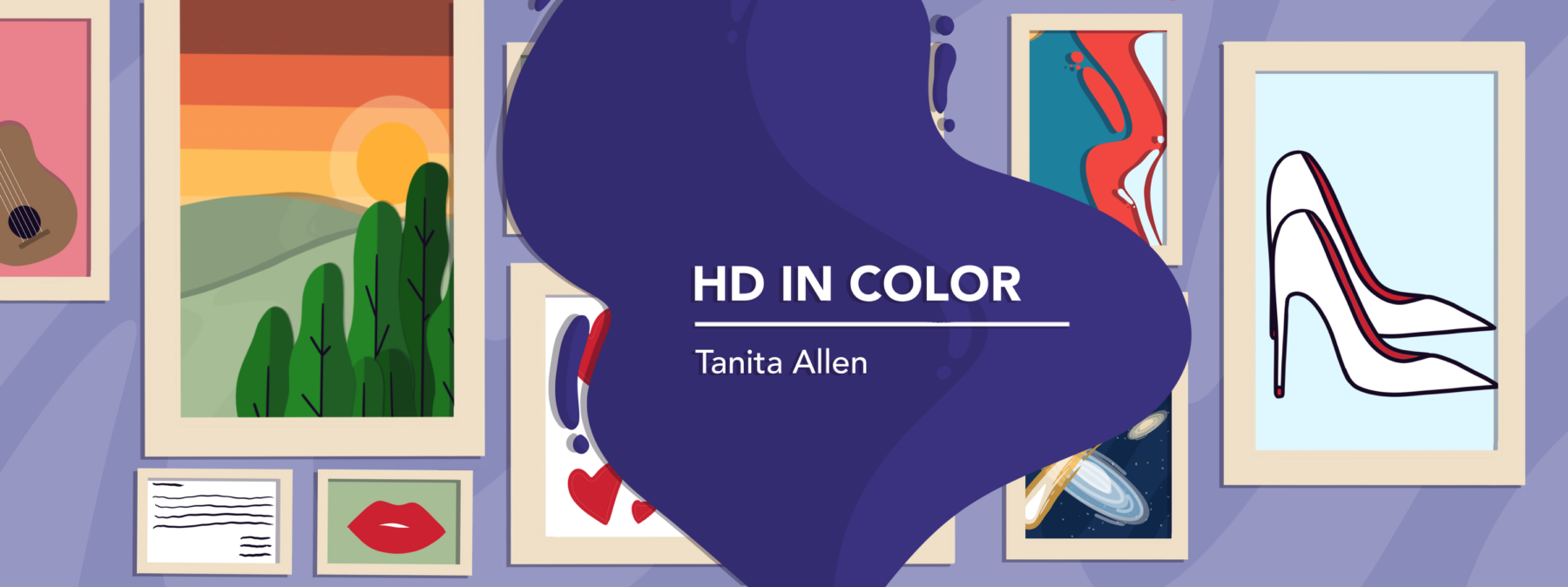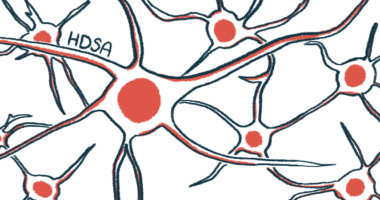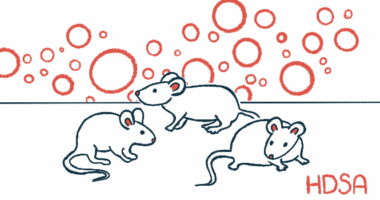My public journey since my diagnosis of Huntington’s disease
Just by opening up, I'm dispelling stigmas and helping communities of color

My name is Tanita Allen, and in 2012, I received life-changing news: I was diagnosed with Huntington’s disease (HD), a rare, neurodegenerative condition.
Huntington’s is rare enough as it is, but the belief that it doesn’t affect people of African descent made getting a proper diagnosis even more difficult for me. After years of unexplained symptoms, I was finally diagnosed at 37 years old. To hear that I had a disease that doctors didn’t believe I could get left me feeling not only devastated, but also dismissed by the medical community.
Huntington’s, after all, is not just a medical diagnosis; it affects every part of a patient’s life, including physical abilities, relationships, and mental health. As a Black woman, I was entering a space with little to no Black representation. I quickly understood the need to challenge the narrative that this disease doesn’t affect people like me.
Going public
I chose to go public with my Huntington’s because I wanted to raise awareness about my disease in communities of color. Rare diseases, including HD, are often underdiagnosed in minority communities because of medical biases and a lack of awareness. By being open, I wanted to confront these misconceptions head-on and make sure that others who might be experiencing symptoms don’t feel isolated or overlooked, as I did.
I wanted to create a community of support. Huntington’s is challenging not only for the patient, but also for their family and friends. By speaking out, I could help others who were in the same boat — offering a shoulder to lean on, a story to relate to, or simply the comfort of knowing they aren’t alone.
Advocacy matters. Raising awareness by sharing my experience and educating people about HD, especially within communities of color, is essential. It’s not enough for me to live my life quietly with this condition. I want to make noise, to educate, to challenge outdated thinking, and to push for better care and resources for people of color with rare diseases, including mine.
The impact on my life
Going public has had its ups and downs. By sharing my story, I’ve been able to build a network of support, both within the Huntington’s community and outside it. These connections have given me strength and purpose during some of the darkest times.
My advocacy work has also been incredibly fulfilling. I’ve had the chance to speak at events, share my experience on public platforms, and contribute to efforts aimed at increasing awareness and research for Huntington’s. Most importantly, I’ve been able to bring attention to the experiences of people of color who live with HD and other rare diseases. I want those people to know that they’re seen and their experiences matter. If my story can help even one person feel more understood, then I’ve done something worthwhile.
However, being public about my diagnosis hasn’t come without challenges. Stigmas surround Huntington’s disease. People may assume that it defines you, that you’re incapable of leading a full life, or that you should hide it out of fear or shame. I’ve also faced ignorance. Even now, I sometimes feel like I’m constantly battling misconceptions about HD, in both the medical field and society at large.
I’ve had to be vulnerable in ways I never anticipated. Sharing such an intimate part of my life has been emotionally exhausting. Some days I wish I could turn off the spotlight and live without having to think about my disease. But at the same time, I know that being open is what’s needed to raise awareness and help others feel less alone.
Moving forward
I don’t regret my decision to go public with my Huntington’s disease. That choice has given me a platform to make a difference, advocate for change, and shine a light on the experiences of people of color who live with rare diseases. My HD journey is far from over, and while the road ahead will undoubtedly be difficult, I’m determined to keep pushing forward.
If there’s one thing I hope people take away from my story, it’s this truth: Rare diseases don’t discriminate. They can affect people of every race, ethnicity, and background. By sharing our stories, we can help break down the barriers that exist in healthcare, create more inclusive communities, and ensure that no one faces a diagnosis alone.
I’ll continue to be open, not only for myself, but also for the countless others on a similar journey. Together we can change the narrative and raise the awareness that’s so desperately needed.
Note: Huntington’s Disease News is strictly a news and information website about the disease. It does not provide medical advice, diagnosis, or treatment. This content is not intended to be a substitute for professional medical advice, diagnosis, or treatment. Always seek the advice of your physician or other qualified health provider with any questions you may have regarding a medical condition. Never disregard professional medical advice or delay in seeking it because of something you have read on this website. The opinions expressed in this column are not those of Huntington’s Disease News or its parent company, Bionews, and are intended to spark discussion about issues pertaining to Huntington’s disease.








LARRY W BOYD
How can I join you in your quest to educate, inform and inspire minority people and communities about Huntington's?
Tanita Allen
Thank you so much, Larry, for your interest and willingness to join this important cause! It’s crucial that we raise awareness in minority communities about Huntington’s Disease, especially because so many still face barriers to diagnosis and care.
There are many ways we can work together! We can collaborate on outreach efforts, whether it’s through hosting educational workshops, creating content, or using social media to amplify voices and stories from our communities. I’d love to hear your ideas and discuss how we can make an impact together. Let’s connect and make this movement stronger!
Marion Franke
Hallo,
Vielen lieben Dank für die ehrlichen und starken Worte.
Ich freue mich auf deine weiteren Kommentare.
Viele liebe Grüsse.
Marion
Carie
Thank you for being courageous and sharing your story. My dad died of Huntington’s, he was the first in our family as well. He is biracial and most of his Dads side of the family died early due to cardiac problems. His dad was 44 when he died of a heart attack. I haven’t been able to find anyone who has this. It’s interesting to hear you are the first as well. I received my positive gene status about 5 years ago and this has been hard to com to terms with. Thank you again for sharing your story.
Jaylee lockaby
hi I am doing a school project on huningtons disease and was wondering what effects the disease hqd on you